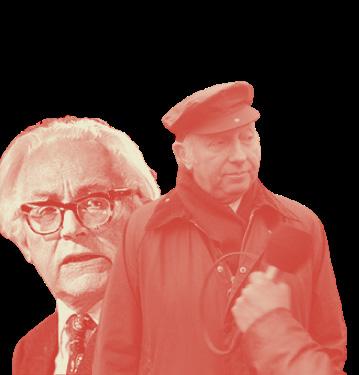How socialist is Sanders? The case for a class struggle social democracy
to speed with the ‘social market economies’ of countries such as Germany, let alone the liberal ‘social democracies’ of Northern Europe. Why, then, does an American politician seeking election on a set of policies to the right of the demands of most European left-liberals call tar himself with the brush of socialism? A compelling answer would be that the colour of Sanders’ politics rests less on the Rooseveltian social changes that would result from a four-year presidency), and more on the radical way these changes would be brought about, in line with his political hero: Eugene Debs.
I believe socialists in the Marxist tradition must reclaim the movement behind Bernie Sanders and other US democratic socialists. Even where Sanders’ policies do not represent an unprecedented break with capitalism, both his 2016 and 2020 campaigns spoke the language of a class conflict which did not begin or end at the ballot box. It relied explicitly on an active mass movement of the ‘99%’ defined in opposition to corporate interests. As such, they represented a rejection not only of left neoliberalism, but also of the class compromise of post-war social democracy. The victory of such a campaign would represent the establishment of a ‘class struggle social democracy’ which could (or, depending on your analysis, necessarily would) make way for democratic socialism. The alternative to socialist support for these movements, which have already proven their ability to galvanize, is that they become steadily deradicalized: their most inoffensive demands are adopted, their figureheads co-opted and their rhetoric defanged by the liberal establishment. It is the aim of this article to offer a tentative attempt at locating modern democratic socialist thought within Marxism, focusing on trends in America, and to consider its utility in bringing about a post-capitalist society. In doing so, it is necessary to separate the period of transition, which we might refer to as class struggle social democracy, from the end goal, that of a democratic socialism. ‘Jacobinism’ Somewhat perversely, the infrastructure of the socialist movement in the United States was only re-established after the defeat of Bernie Sanders and Donald Trump’s election in 2016. In the intervening period, Democratic Socialists of America (DSA) have seen their membership balloon from some 10,000 before Sanders’ first campaign to the roughly 85,000
look left MT20
Liberal commentators never really decided what exactly Bernie Sanders was. Sometimes, he was a dangerous radical whose nomination would render the Democratic Party unelectable. In other instances (and most notably when it appeared he might win), he was simply a sheep in wolf’s clothing: a New Deal liberal who chose the perverse label of ‘democratic socialist’. Even some of his campaign’s supporters lamented what they saw as an unnecessary and distracting association with that concept – socialism – towards which the majority of Americans were considered hostile. There are, on the surface, reasonable grounds for rejecting Sanders’ controversial claim to socialism. The promises of universal healthcare provision and of greater state expenditure to tackle climate change, although derided by establishment Democrats, would barely have brought America up
17
Alex Beard, History and German at University College








